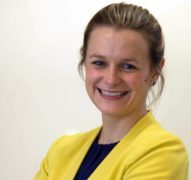It’s as if the previous 12 years didn’t happen.
I’ve just finished the final pages of the last Harry Potter book for the second time.
And I feel exactly like my 22-year-old self upon reaching the end in 2007. Bereft. A little empty. As desperate as I was to gobble up the ultimate chapter of The Deathly Hallows, I can’t believe it’s over. Harry and his pals have been my constant companions these past months, so – at the risk of sounding melodramatic – I’m going to miss them.
Such is the power, the magic, of a good novel. You live and breathe it. It takes you on a journey and, at the close, there’s often a sense of loss.
As one of the central characters tells another – in what I’ve since learned is J.K. Rowling’s favourite line: “Of course it is happening inside your head…but why on earth should that mean that it is not real?”
A story may be make-believe, but how it makes you feel is real. And in my experience the best ones get better with each reading.
This was certainly true of my second Hogwarts visit. A decade in between meant I didn’t remember every detail, thus I was gripped throughout once again. Moreover, the messages affected me much more profoundly than before, particularly the notion that everyone is flawed. Nobody – not even Dumbledore – is perfect, but crucially, this doesn’t make you a bad person.
I’ve also enjoyed hiding my Kindle under the covers so as not to disturb Mr R in the wee hours. Not quite as theatrical as the torch both my mum and I used as teenagers, but the sense of excitement was the same, a feeling my daughter Maya will hopefully savour in turn.
Keen to instil a love of books, we’ve read to her since the very beginning. She gets three stories at bedtime and I take her to the library once a week.
Like most kids, she’s partial to a bit of television. However, happily – so far anyway – she relishes reading too. On a few occasions recently, I’ve even found her tucked into the bottom shelf of the bookcase in our hallway, her lap full of books.
This is obviously encouraging, although I’ve no doubt that maintaining her interest will be an ongoing battle amid competing past-times in our technology-filled world.
And it’s a challenge we need to approach collectively, on behalf of all our children, in the context of statistics that suggest the medium needs to be actively protected.
According to the National Literacy Trust, children and young people’s reading engagement has steadily fallen over the past four years. Its eighth annual literacy survey of almost 50,000 UK children aged eight to 18, conducted between November 2017 and January 2018, found that levels of daily reading had decreased for a second consecutive year. The most recent figures I could find for adult literacy are equally worrying, with one in four in Scotland – 26.7% or 931,000 people – experiencing challenges due to their lack of literacy skills. In England, one in six – 16.4% or 7.1million people – have very poor literacy skills.
This is clearly a situation that requires our attention for a host of reasons.
Most fundamentally, without literacy, a person cannot participate fully in society. Imagine not being able to read medicine instructions or help your child with school work; imagine facing a job search if you struggle with reading or writing. There’s also an economic cost to the country as a whole from illiteracy, not to mention the health benefits associated with reading. Research has shown children with reading difficulties are at greater risk of developing mental health problems in later life.
Studies have found as well that reading for pleasure can be more important for children’s cognitive development than their parents’ level of education and a more powerful factor in life achievement than socio-economic background.
Furthermore, putting the science to one side for a minute, reading can be a source of great delight, as I sought to convey at the start. We don’t necessarily have to be reading to learn something or to broaden our horizons. It can just be fun.
Whatever one’s motivation for reading, with so much to be gained, the idea that there are children – and indeed adults – missing out is deeply upsetting. We need to do better.
And as the new Waterstones children’s laureate, How to Train Your Dragon author Cressida Cowell, has highlighted, access to a library is key.
“If your parents can’t afford books and your primary school doesn’t have a library because they’ve been shutting over the last 10 years and you don’t go to the public library, how do you become a reader?” she asked, after being unveiled as the 11th writer to take up the role.
Frankly, I don’t think you can, or at least it would require a lot of initiative.
I’m forever saying to Maya, who isn’t always careful with the pages, that books are precious. I want her to understand she must look after them and realise how lucky she is to have so many and be able to borrow others.
In this latter sense, however, they shouldn’t be precious at all. For, as Cowell sets out in her charter, owning a book should be every child’s right.
A human right in fact.
Lindsay Razaq is a journalist and former P&J Westminster political correspondent who now combines freelance writing with being a first-time mum

